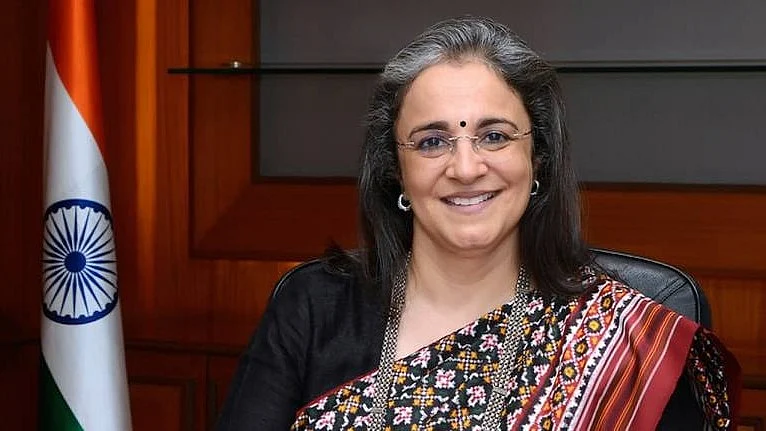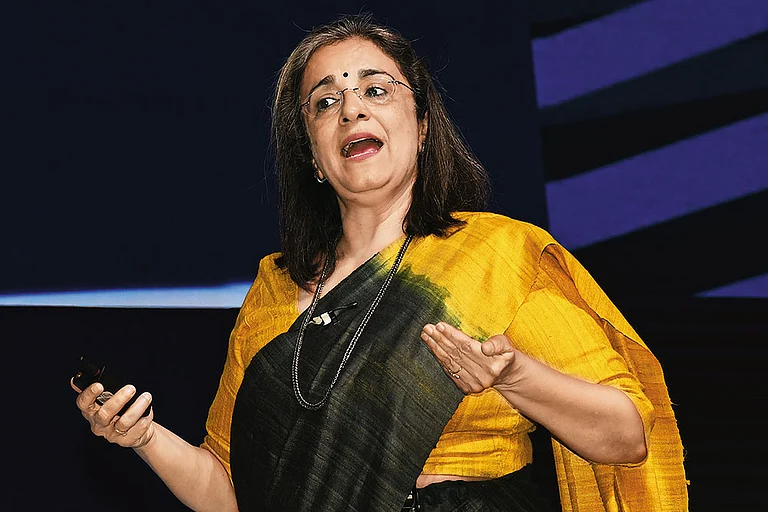The Lokpal of India has dismissed corruption and conflict of interest allegations against former SEBI chairperson Madhabi Puri Buch, observing that complaints filed against her "are more on presumptions and assumptions and not supported by any verifiable material".
The anti-corruption watchdog headed by Justice A M Khanwilkar said that the complaints "do not attract the ingredients of the offences" that they have to "direct an investigation" into the matter.
The complaints were filed after US-based short seller Hindenburg Research made a series of allegations against Puri Buch and her husband Dhaval Buch, linking them to a fund linked to the Adani Group. The short seller also made allegations of conflict of interest over consultancy payments made to her husband by the Mahindra & Mahindra (M&M) Group.
Lokpal, in its order on May 28, looked into five broad allegations against Buch:
Madhabi Puri Buch and her husband allegedly invested a large sum in a fund tied to Adani Group companies, which were under SEBI investigation for stock manipulation. She was accused of failing to disclose these investments to SEBI’s Board and the Supreme Court-appointed Expert Committee.
Buch allegedly received consultancy fees through AAPL—a firm in which she held a 99% stake—and via her husband, from companies like Mahindra & Mahindra Group and Blackstone Inc., both of which had pending regulatory cases before SEBI during her tenure as a whole-time member or Chairperson.
She was accused of benefiting through rental income from Carol Info Services Pvt Ltd, allegedly linked to Wockhardt Ltd, a company under SEBI investigation for insider trading.
Buch reportedly sold ESOPs from ICICI Bank between 2017 and 2024—though they had vested in 2013—during a period when the bank had regulatory matters pending with SEBI. Any leniency by SEBI could have affected the stock price, benefiting her financially.
Although Buch claimed to have recused herself from matters involving Mahindra & Mahindra and Blackstone, she allegedly used her position to influence other SEBI members to ensure favourable outcomes for these firms.
In a detailed ruling, the Lokpal noted, “Neither the incorporation of two consultancy companies after her retirement nor the substantial investment made by RPS (Madhabi Puri Buch) and her husband in a Fund in 2015 has any relevance to bring home how it is a case of taking or obtaining undue advantage or one of quid pro quo.”
The Lokpal highlighted that the investments were redeemed in 2018 — well before SEBI’s investigation into the Adani Group began in 2020 — and that Buch had no role in those proceedings. The Fund itself, the order says, had not invested in Adani Group shares. The complaint that RPS had submitted redacted documents to the Supreme Court-appointed Expert Committee was also dismissed as meritless.
“The allegation that RPS intentionally provided heavily redacted documents... is truly a veiled attempt to reopen and question the findings of the Supreme Court,” the Lokpal concluded.
The Lokpal firmly rejected the second set of allegations, noting that Buch had formally recused herself from all M&M-related matters and had disclosed her husband’s consultancy relationship to SEBI in 2019.
“The RPS had never dealt with any file/decision relating to the cases pertaining to M&M Group... the allegation is palpably unfounded and devoid of merit,” the order said.
The Lokpal further noted that most regulatory approvals cited by the complainants either occurred before Dhaval Buch began consulting or were handled by separate departments or independent panels. The credibility of the complainants’ claims was further undermined by the lack of diligence.
“No due diligence has been done by the complainants before making such reckless and unfounded allegations,” the Lokpal panel observed.

































